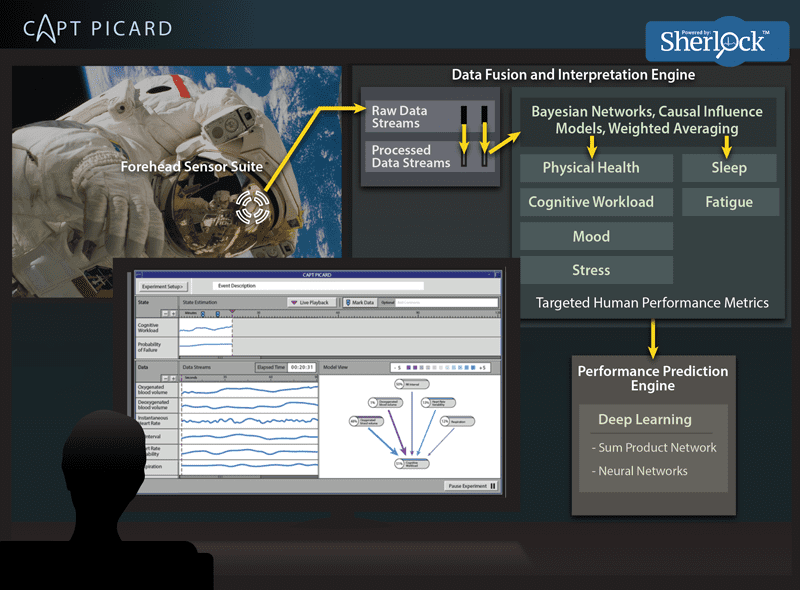Charles River Analytics Inc., a developer of intelligent systems solutions, has announced a follow-on contract awarded by the National Aeronautics and Space Administration (NASA) to measure and assess astronaut workload. The system for Cognitive Assessment and Prediction to Promote Individualized Capability Augmentation and Reduce Decrement, or CAPT PICARD, will measure, assess, and predict cognitive workload to assist astronauts or mission control in responding more effectively. The two-year contract is valued near $750,000.
Astronauts sent on manned NASA missions face long periods of low workload, followed by sudden, high tempo operations. They may also experience disrupted sleep, long-term motion exposure, and lack of normal gravity, which can lead to fatigue, stress, and decreased mood, ultimately impairing cognitive and psychomotor functioning.
“We’re refining, evaluating, and validating an unobtrusive system to measure, assess, and predict Astronaut and testing and evaluation lab test subject cognitive workload in CAPT PICARD,” said Dr. Bethany Bracken, a scientist at Charles River Analytics, and Principal Investigator on CAPT PICARD. “The system will allow us to warn Astronauts or Mission Control when steps should be taken to augment cognitive readiness. CAPT PICARD will also assist laboratory scientists and engineers in evaluating cognitive and physical demands of new tools and determine their effects on task performance and accuracy.”
The CAPT PICARD system can be useful not only during missions, but also during testing and evaluation phases of tools and systems. This system allows engineers to accurately evaluate the cognitive and physical demands of these tools and the effects they have on task performance and accuracy.
CAPT PICARD uses Sherlock™, Charles River’s open and extensible software and hardware platform that provides a unified, end-to-end solution to rapidly prototype applications that collect, analyze, visualize, and reason about human physiological, neurological, and behavioral states. Sherlock includes Figaro™, an open-source probabilistic programming language for probabilistic modeling.
CAPT PICARD contains several hardware and software components, as shown in the image below. The system can sift through data from sensors, shown in the picture of the Astronaut on the top left, and interpret that data as indications of human state, shown in the Data Fusion and Interpretation Engine on the top right. It then uses this information to predict a decline in performance before it occurs, as seen in the Performance Prediction Engine on the bottom right. Finally, the system communicates this information to Mission Control or experimenters at the appropriate level of detail for either user, as seen in the user interface for experimenters at the bottom left.
To develop and refine the CAPT PICARD system, Charles River is teaming with Massachusetts General Hospital and Brown University.
Charles River is building upon recent NASA efforts in the CAPT PICARD system. In 2014, it was awarded a contract to improve aviation safely using probabilistic programming in NASA’s Programming Useful Life Prediction effort. Charles River also received a contract for a satellite image processing system to detect large-scale environmental events.



